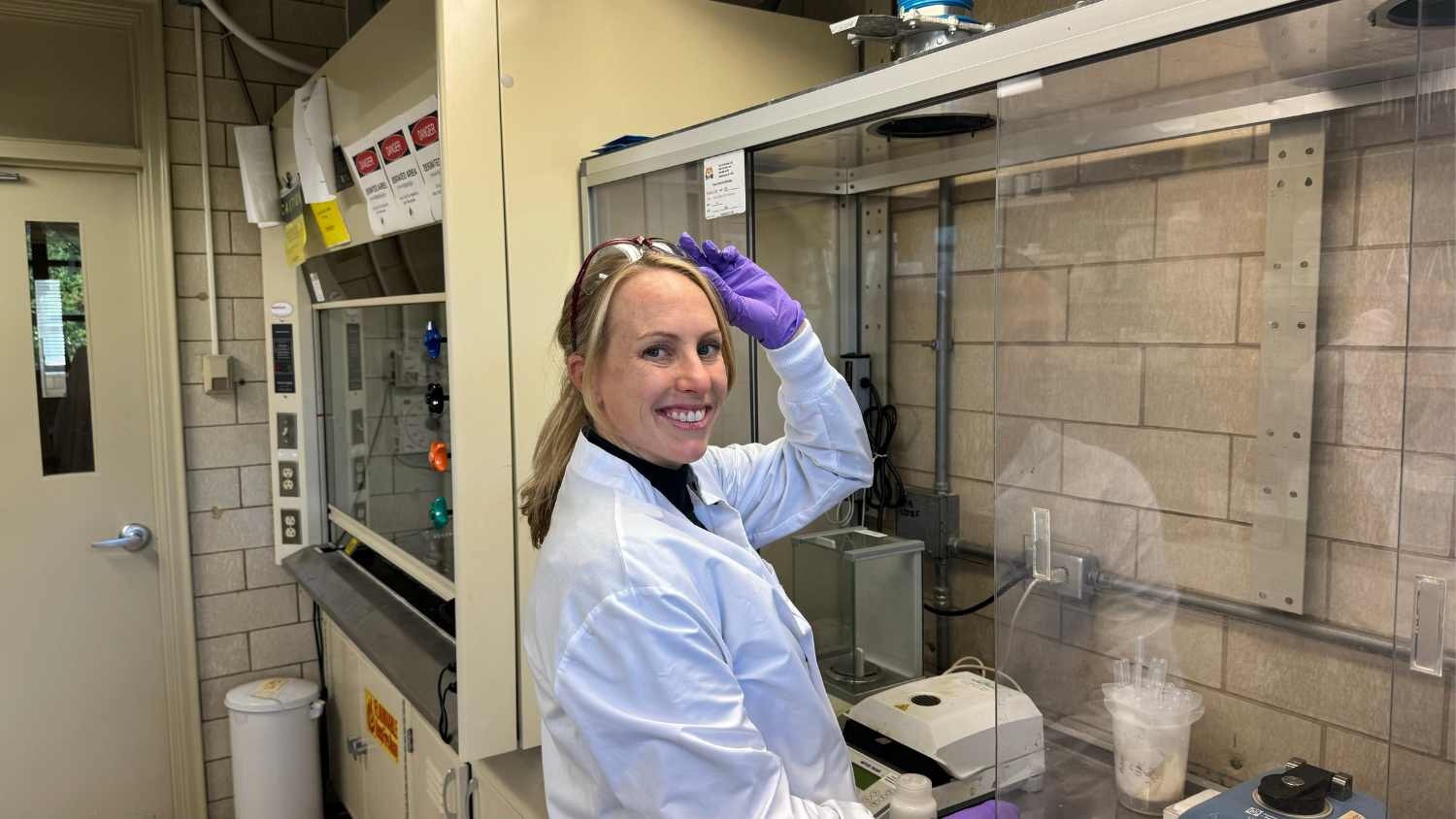Katie Payne graduated in 2013 with a bachelor’s degree in paper science and engineering and chemical engineering. She now works as a staff scientist with Solenis‘ R&D Process Technology & Engineering Group in Wilmington, Delaware.
While at NC State, Payne was a member of the student chapter of the Technical Association of the Pulp and Paper Industry, the University Scholars Program and Delta Delta Delta. She participated in a one-year paper science study abroad program in Jyvaskyla, Finland and Munich, Germany.
We recently spoke with Payne to learn more about her passion for paper science and engineering and how the College of Natural Resources prepared her for her career. Check out the Q&A below.
What does a typical day in your job look like?
I am typically splitting my time each day between 1-2 different projects for Solenis, where I am either working on a new innovation, improving internal lab procedures or troubleshooting plant or customer questions. This work involves a mix of work in our pilot plant at our research center, in offsite trials at customer sites or other pilot plants, in the lab or through meetings and/or email communications. My level of involvement in these projects varies constantly based on company and customer needs and priorities.
I also spend additional time, outside of my official role with Solenis, participating in Solenis’ sustainability task force and leading our newly created local chapter of Solenis Emerging Leaders, a group that helps newer Solenis employees to network and gain leadership skills.
What inspired you to study paper science and engineering?
I was very fortunate to receive a scholarship from NC State to study paper science and engineering. I enjoyed math and sciences in grade school so I wanted to work toward a career where I used those disciplines and studying paper science allowed me to do that. My focus in studying paper science and engineering and joining the pulp and paper industry was, and still is, to make contributions toward making the industry more sustainable so that it can provide quality, affordable products to customers while minimizing its environmental footprint.
What impact are you making through your position?
Fortunately, in my role as a scientist at Solenis, I work on some very exciting and innovative projects. Some of these different projects have the potential to provide more environmentally-friendly alternatives to industry standards and/or create different capabilities within the industry – and that is the kind of work that I am proud of.
I also have focused on creating positive social impacts within Solenis by developing a local group that allows new or younger Solenis employees to meet face-to-face and learn about each other’s roles and responsibilities plus get leadership advice. My intention for this group is to help people feel connected to each other and to better understand how they fit into the broader organization. It also allows them to learn about different career paths within Solenis and how others have navigated their careers.
How did the college prepare you for your current position?
The College of Natural Resources provided challenges – a new environment, new people, new concepts, tough coursework – and I was able to successfully overcome them. This gave me confidence that I could be adaptable and learn what I needed to solve problems and meet goals. This is crucial for the role that I am in. I need to be able to solve some tough problems, and I need the confidence to know that I can do it if I work hard and focus on achieving my goal.
What advice do you have for current College of Natural Resources students?
Vary your exposure to different subjects, people and opportunities while you are at NC State. There are so many opportunities there that you can take advantage of that will be harder to come by in the future. I was able to enjoy multiple international trips and study abroad opportunities, attend programs offered by the Honors Program, make friends and so much more. I am very grateful that I took advantage of all those opportunities when I did.
- Categories:



